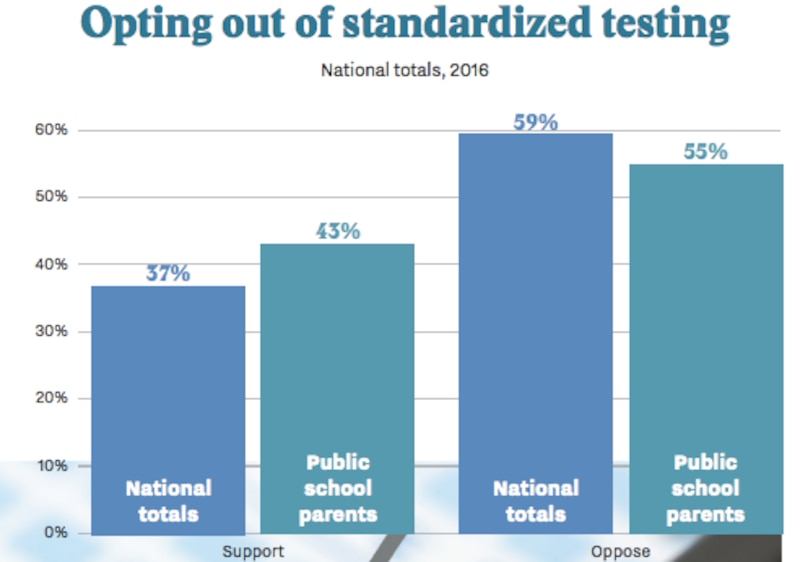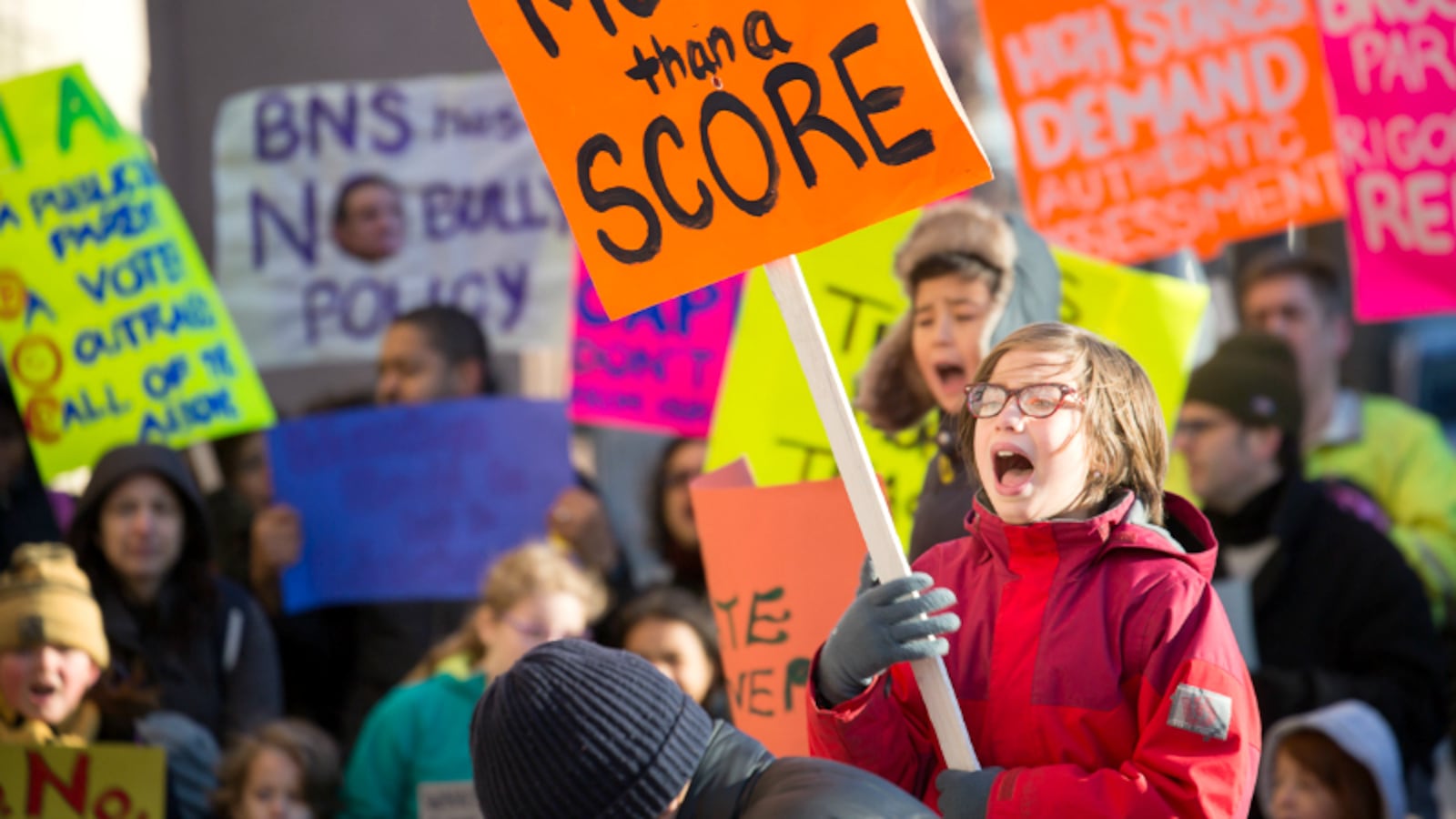Americans are overwhelmingly against closing struggling schools, divided on whether parents should be allowed to opt their kids out of standardized tests, and more enthusiastic about expanding career and technical education than honors classes.
They’re also split on what, exactly, schools are for in the first place.
Those are just some of the findings from an annual poll published Monday by PDK International, a professional association of educators. And while the study is based on a representative sample drawn from across all 50 states, Josh Starr, a former New York City teacher who is now CEO of PDK, said the findings map onto local debates about the city’s “Renewal” turnaround program, for instance, and state policy on career and technical education.
Here are four charts from the report that connect with conversations that are unfolding in New York City.
1. There is no consensus on what the main goal of the country’s public schools should be — and that makes it complicated to figure out how to assess them. “There’s certainly been rhetoric bubbling up about needing more career experiences, but the accountability is all around academics,” Starr said.
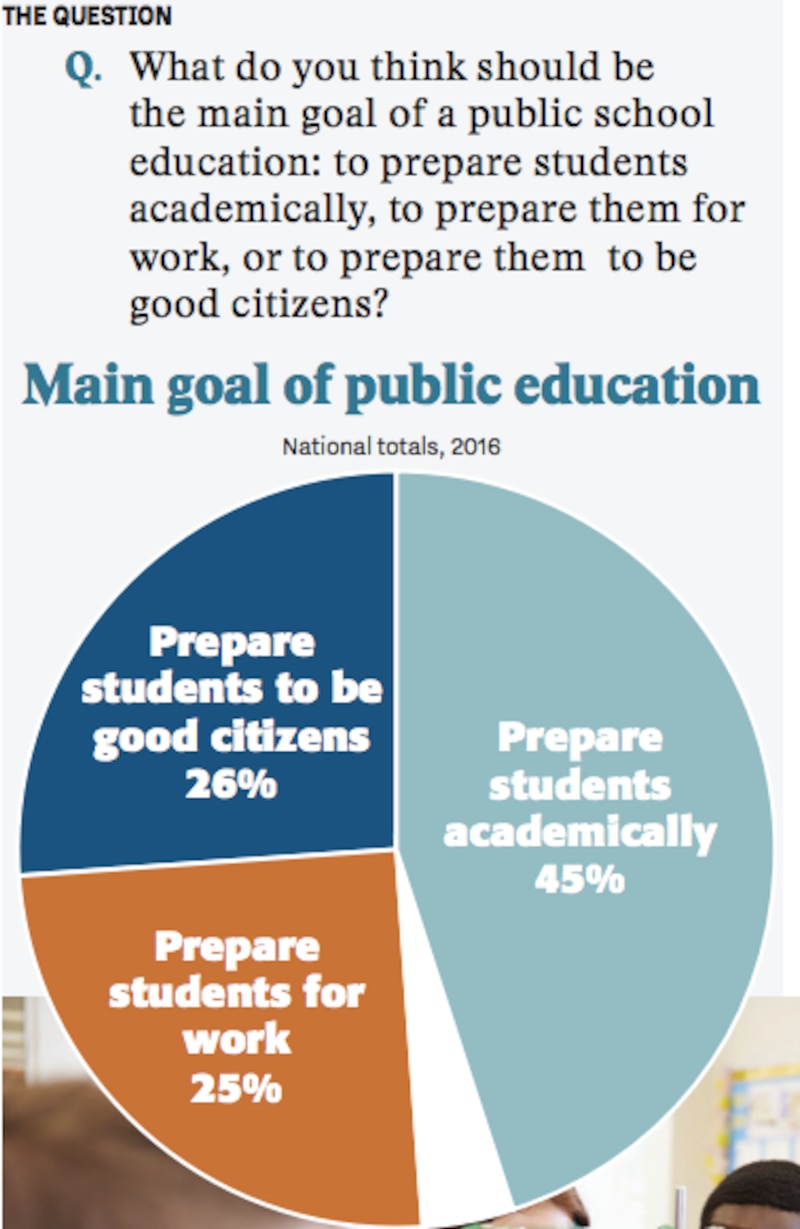
2. The vast majority of Americans don’t think failing schools should be closed. But when those schools are kept open, most people think the administration and faculty should be replaced. Keeping schools open and flooding them with resources is the underlying approach to struggling schools in New York City’s Renewal program, but with a few exceptions, the city can’t dramatically change a school’s staff.
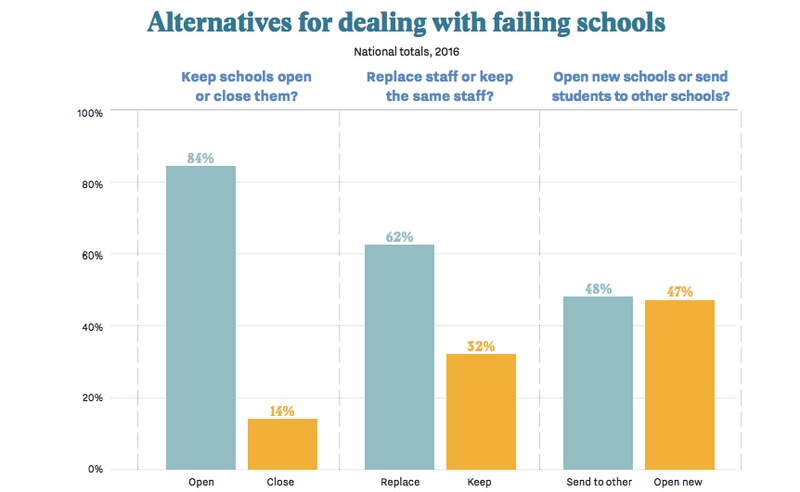
3. Overall, support for career and technical education far outpaces the desire for more honors or advanced classes. But starting new career-oriented programs can be a challenge in New York, where a complicated approval process can trip up schools. Still, technical programs have taken on increased significance, and can now replace other graduation requirements.
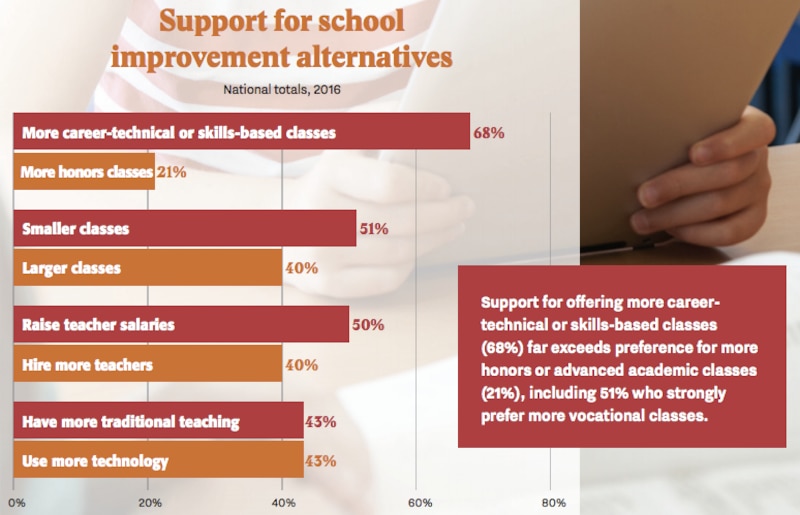
4. Fifty-five percent of public school parents oppose allowing children to sit out standardized tests. Overall, the demographic groups most opposed to the opt-out movement are black people (67 percent) and senior citizens (68 percent).
